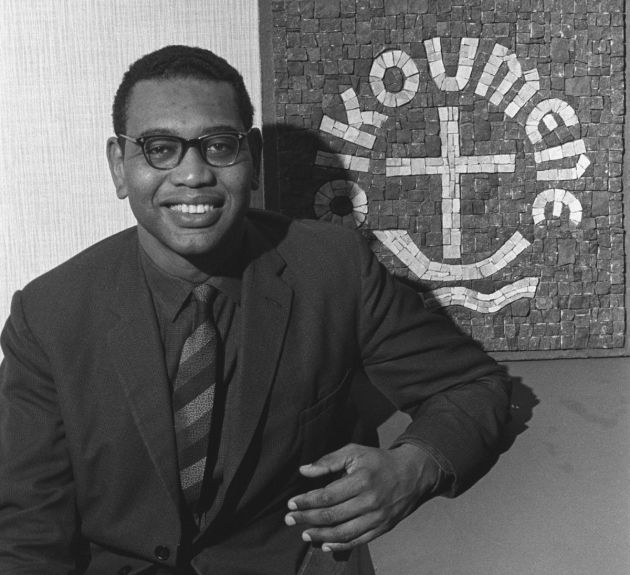World Council of Churches lauds Philip Potter, one of its most famed leaders

The World Council of Churches has paid special tribute to the Rev. Philip Potter, the third general secretary of the WCC, who brought the ecumenical body to international attention in his leadership of its campaign against racism, and who has died in Germany.
A native of Dominica, Potter led the world church body from 1972 to 1984, and was reviled by the South Africa's apartheid regime during the seventies and eighties.
"Almost everyone I meet who has a strong image of or a strong opinion about the World Council of Churches links this to Philip Potter,"said Rev. Olav Fykse Tveit, the current WCC general secretary.
"First as a young delegate at conferences and assemblies, then as a member of staff, and later as WCC general secretary, Philip has always brought high visibility to the Council," said Tveit.
A global ecumenical leader known for accompanying churches around the world in their struggles for unity, justice and peace, Potter died on March 31 at the age of 93 in Lübeck, Germany.
Born in Roseau, Dominica, in the West Indies on 19 August 1921, Potter began his ecumenical involvement as part of the student Christian movement in the Caribbean.
He was a youth representative to the first two assemblies of the WCC at Amsterdam in 1948 and Evanston in the United States in 1954.
He was the first person from the newly independent countries in the world to be elected as general secretary of the WCC.
Among the most memorable achievements of Potter's tenure were the theological consensus document on Baptism, Eucharist and Ministry and the continuation of a courageous campaign against apartheid in Africa and against other forms of racism throughout the world.
"He was ever ready to open debates, to offer the WCC as an open space for ecumenical reflection and action and to make known his own positions," said Tveit.
"Philip Potter remains as ever, a credible witness to the vision of the kingdom of God and its true values of 'righteousness' peace and joy in the Holy Spirit (Romans. 14:17b)."
The WCC said Potter made significant contributions to the vigorous debate on the nature of post-colonial Christian mission and evangelism.
He was noted for " the churches' witness for peace amidst East-West tensions, the raising of questions concerning the ecological crisis and encouragement of campaigns challenging the threat of nuclear annihilation.
"In this era the WCC also sponsored the development of new forms of spirituality, common prayer and music drawing on the diverse traditions and confessions of diverse churches."
Before joining the WCC, Potter served as staff of the Methodist Missionary Society in London.
He represented the Jamaica Student Christian Movement at the 1947 world conference on Christian youth in Oslo, Norway.
Potter was an active participant in every WCC assembly from 1948 to the 9th Assembly at Porto Alegre, Brazil (2006).
While in Geneva, Potter also chaired the board of the World Student Christian Federation.
He is survived by his widow, Bishop-emeritus Bärbel Wartenberg-Potter of the Protestant Church in Germany (EKD). His first wife, the musician and composer Doreen Potter, died in 1980.
